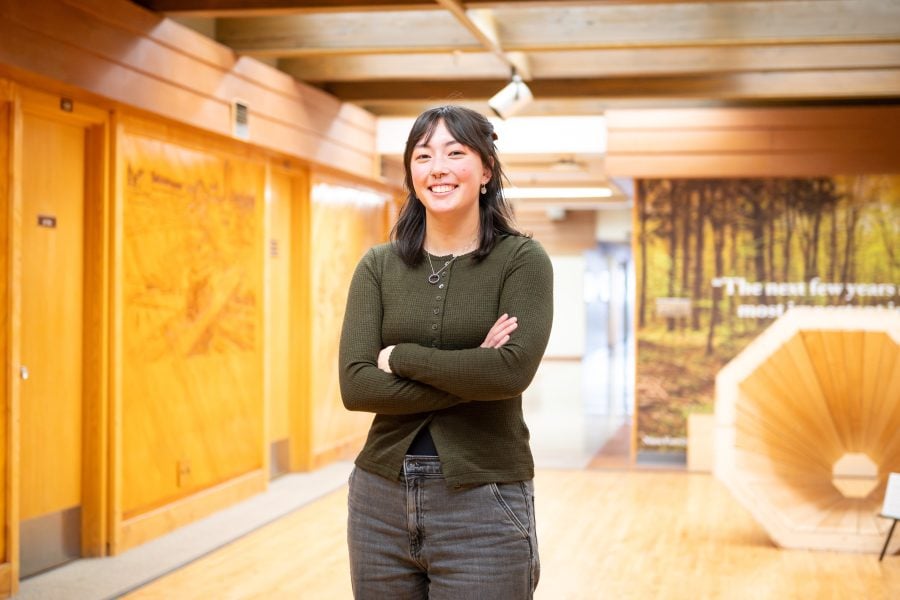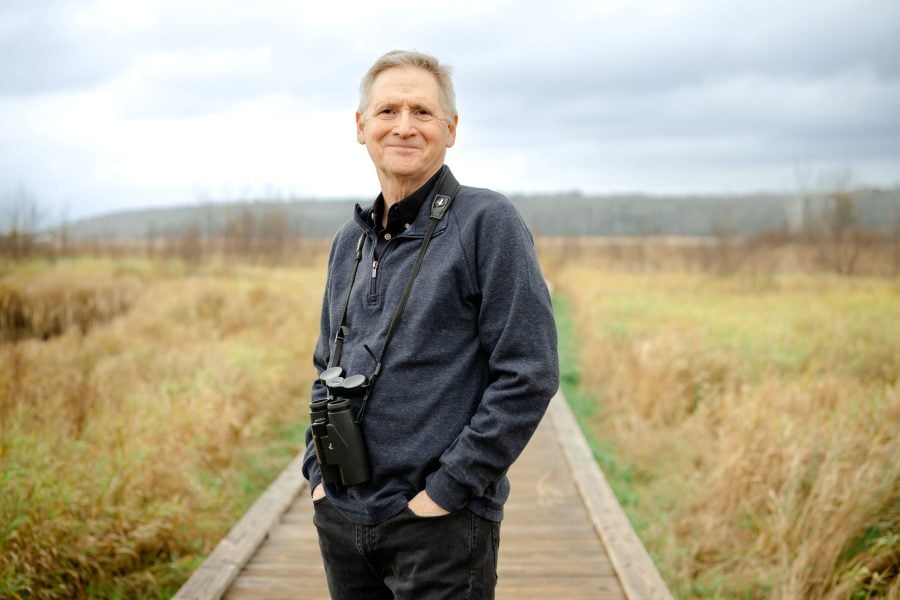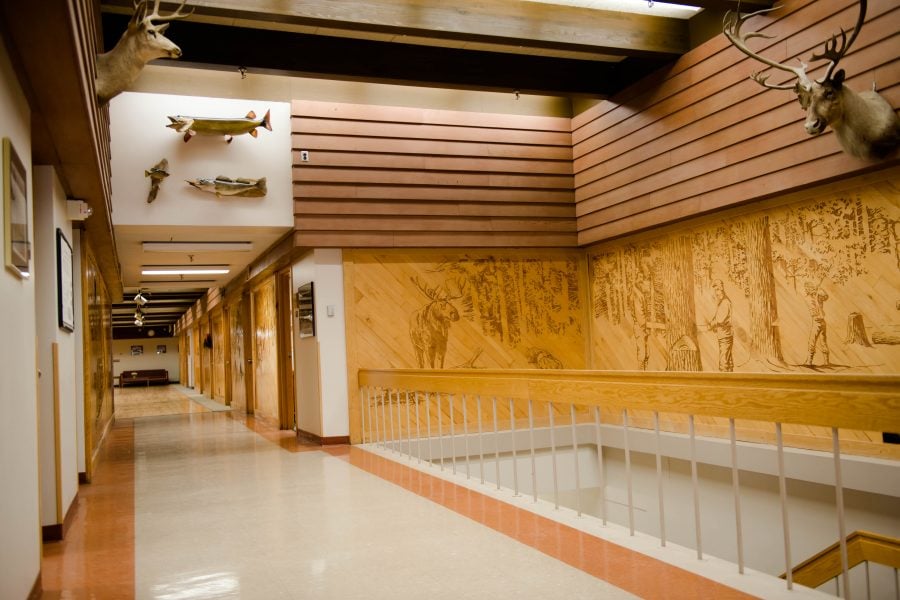
When Quinn Riordan shares her farewell message as the 2025 student speaker for Midyear Commencement, she’ll also be continuing to prepare for her future.
“I’m pursuing a career in environmental education and research, which requires a lot of public speaking,” said Riordan. “What’s a better opportunity to get more practice than in front of my whole class?”
Riordan, who is earning her bachelor’s degree in applied ecology and environmental science, said she’s honored to be selected as speaker and grateful to College of Forest Resources and Environmental Science Dean David Flaspohler, who gave her the nudge she needed to throw her hat into the ring.

